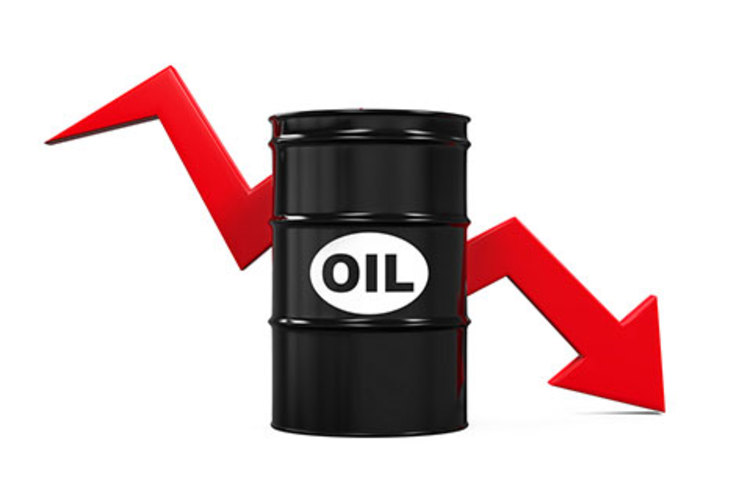
The Sunday Mail

Business Editor’s Brief
If Zimbabwe is to take its pride of place among manufacturing and competitive economies, there is obvious need to unlearn these harmful tendencies to cheat consumers.

Oil prices have been on a downward spiral
GREED and avarice are probably the most unfortunate exports from arguably the country’s most trying economic period — the hyper-inflationary era.
Inflating invoices, misrepresenting the price of goods and services and extortionate mark-ups have generally become the stock-in-trade for many enterprises, big and small.
Also, the fact that economic and mathematical literacy is a challenge to most people really does not help.
Inflated prices generally have a direct impact of the implied value of commodities and services, which, naturally, also inflates the cost of doing business.
For quite a while now, questions over local fuel prices remain.
Prices for both diesel and petrol have been retreating reluctantly on the local market, but tumbling on the international market.
In December 2014, we were the first to interrogate the reason why there were cosmetic downward adjustments in fuel prices on the local market at a time when there were massive declines on the world market.
At the time, brent crude oil was trading at $60 per barrel (about 164 litres).
Interestingly, at local fuel pumps, petrol was retailing at between $1,52 and $1,56 per litre, while diesel was sold at between $1,40 and $1,44.
Well, between now and then, the international price has since slumped or halved to $30 per barrel, which represents a massive drop from $60.
But in the same period petrol prices have only shed US16cents.
Assuming that all variables that affect the landed price of fuel remained the same during the period, which they arguably did considering the current deflationary trend, one finds it extremely difficult to explain why prices remain steep.
Experts forecast that prices might fall further to about $20 per barrel.
Zimbabweans know fully too well how relatively high fuel prices impact on the cost of doing business, and, more relevantly, on their pocket.
During the hyper-inflationary era, rising fuel prices did hurt consumers as it influenced the price of goods and services.
They actually fed the inflation spiral.
It is disheartening that the country cannot harness falling fuel prices to address the cost structures of local businesses at a time Government is exploring every other avenue to make local industry competitive by reducing the cost of doing business.
It will be interesting to see how the self-anointed local “oil sheiks” will react when fuel prices begin rising.
But its not the fuel sector that point to an aberration in local cost structures.
In September last year, African Sun, a listed hospitality group, announced that it had contracted Legacy Hotels of South Africa to upgrade and expand five of its properties — Elephant Hills, Kingdom Hotel, Monomotapa, Hwange Safari Lodge and Troutbeck Inn .
And the cost for such an exercise was pegged at $60 million.
Three month later, renowned Portuguese born footballer Cristiano Ronaldo announced his investment in four new hotels in Madeira (Portugal), Lisbon (Portugal), Madrid (Spain) and New York (USA).
The project, which Ronaldo described as “the biggest project in my life” and is being undertaken together a Portuguese hotel chain Grupo Pestana SGPS SA , is valued at $80 million.
Ronaldo will only invest half of the sum ($40 million).
Well, while it might be argued that the refurbishment and upgrade is targeting a total of 923 rooms at the five local properties, still $60 million for the exercise might be pricey considered to an $80 million investment into an entirely new project that will have 400 rooms is targeting some of the world’s prime cities.
It doesn’t really tally.
If, as suspected, the cost that is being quoted African Sun is really high, this might have a direct bearing on the cost of the product.
It has the potential of sparking a vicious circle.
Its really the same with some cross-border traders and small-time retailers who put mark-ups that can be as high as double the original price of the product.
Unfortunately, this predatory way of doing business, which is shorn of any ethics and honour, is slowly being accepted as an acceptable way to do business.
Part of the glut in imports from neighbouring countries is being caused by people who have realised that it is far much cheaper to source any sought-after product for oneself from these countries rather than to rely on local retailers.
Apparently, while this practice might generate short-term benefits for a few individuals, there are destroying the fabric of local business and sustainability of industry.
Disposable incomes and demand from local consumers is at an all-time low, which has made them discerning creatures.
An economic model that focuses on margins rather than volumes seems not to be working in the current circumstances.
There is obvious need to question some of the figures that are quoted for goods, services and projects.
Last year, the President Mugabe complained about how criminal it is to inflate costs, especially costs for national projects since it is the ordinary citizen who has to subsidise for such malfeasance.
If Zimbabwe is to take its pride of place among manufacturing and competitive economies, there is obvious need to unlearn these harmful tendencies to cheat consumers.
It is simply counter-productive.
But this can only be done if people begin to interrogate the cost build-up of goods and or projects whose figures are just casually thrown around.
Feedback: [email protected]



